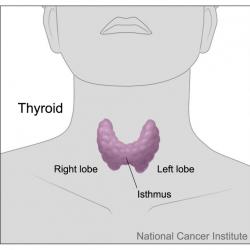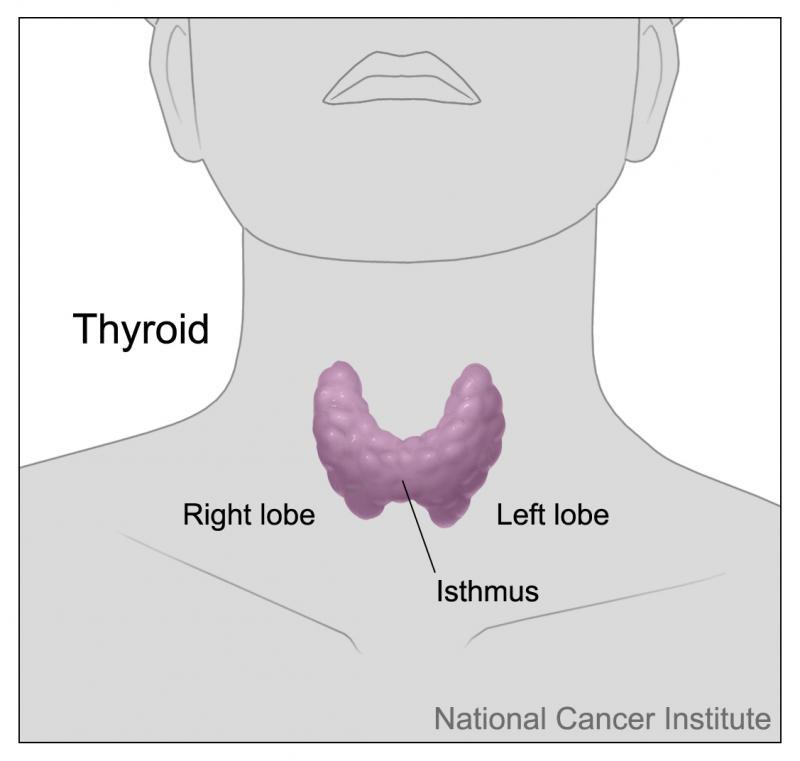Hashimoto thyroiditis is the most common form of thyroid gland inflammation (thyroiditis) and the most frequent cause of decreased thyroid hormone production (hypothyroidism). It results from an autoimmune disorder, an attack on the thyroid gland by a person's own immune system.
The thyroid gland is a butterfly-shaped organ that lies flat against the windpipe in the throat. It produces the hormones thyroxine (T4) and triiodothyronine (T3) and plays an important role in controlling the body's metabolism.
With Hashimoto thyroiditis, the thyroid becomes enlarged (called a goitre), firm, and rubbery but not usually tender. Thyroid gland tissue is slowly destroyed by white blood cells called lymphocytes that move into the thyroid gland and by one or more thyroid autoantibodies. This causes a progressive decrease in the production of thyroid hormones.
About 1 in 1,000 people are diagnosed annually with Hashimoto thyroiditis, and the number has been increasing over time due to improvements in diagnostic techniques. This disorder can affect anyone at any age but occurs most commonly in women who are between 30 and 50 years of age. The ratio of women to men diagnosed with the disease is 20 to 1. People with a family history of thyroid diseases or with other autoimmune diseases, especially type 1 diabetes or adrenal insufficiency are at increased risk.



